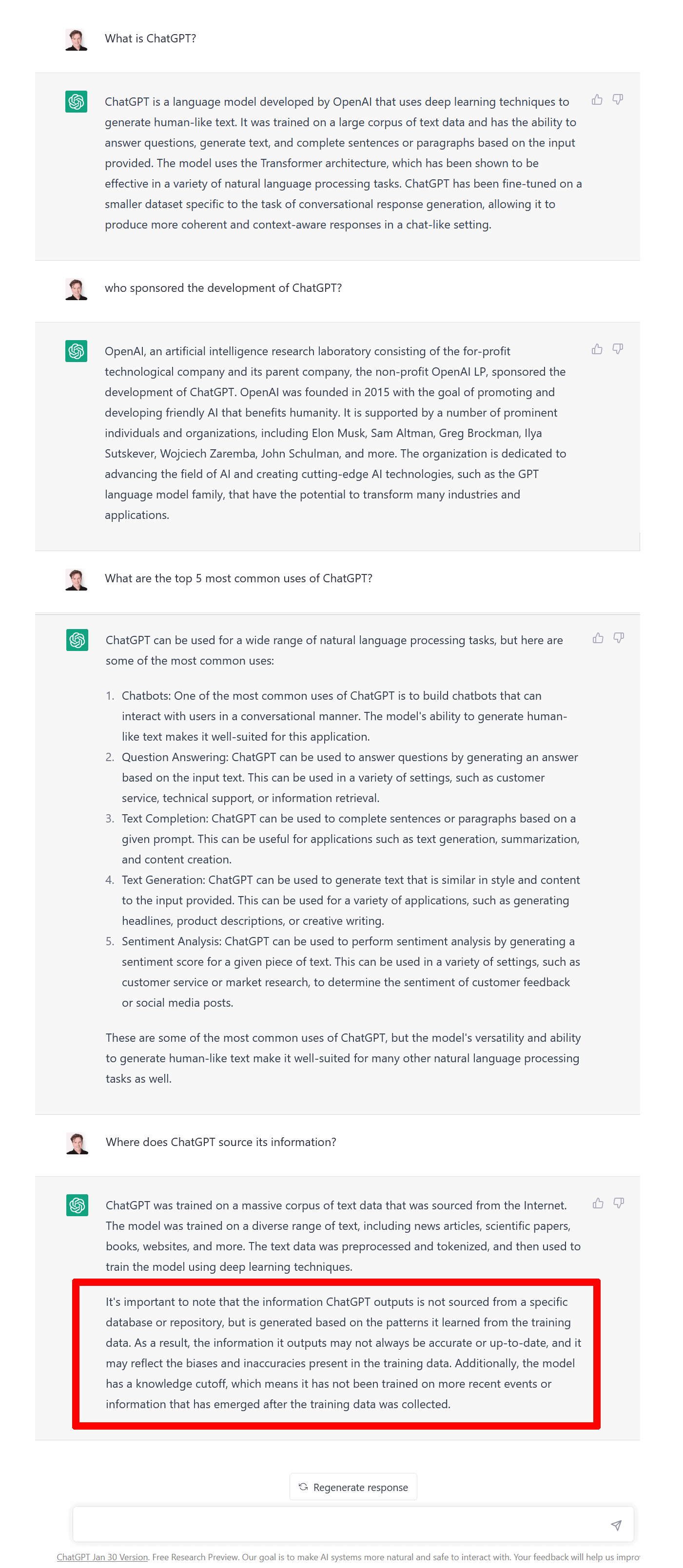Chat GPT’s meteoric rise on the Artificial Intelligence (AI) scene has made numerous headlines, podcast debates, commentary in the broadsheets and studies in academic journals across the globe. So, what’s the big deal and why are people viewing the release of ChatGPT version 4 as a game changer?
What is ChatGPT?
Chat Generative Pre-trained Transformer has been developed by OpenAI, the team behind AI art generator Dall-E, an online app designed to create realistic images and artwork based upon written descriptions. In addition, OpenAI also created Whisper, a highly advanced automatic speech recognition (ASR) based upon 680,000 hours of system learning using different languages and tasks.
ChatGPT is essentially an interactive tool designed to emulate human interaction in response to human input whilst providing a host of other capabilities. It can provide answers to questions, write short essays and stories and even generate programming code. You can try the free option by signing up to https://chat.openai.com. Note that the limitations of the ‘free-to-try’ accounts are the number of characters for any response (up to 25,000) and restrictions on the number of users during peak operation. Many limitations are lifted for subscribers ($20 per month) with faster response times and early access to new features.
Game Changer?
ChatGPT has been hailed as a game changer in the race to develop sentient artificial intelligence and while we are not there yet (though some disagree), it’s perceived as significant leap forward. I recently heard AI referred to as Augmented Intelligence in the sense that AI creations will never fully replace human interaction or creativity but instead support and enable people to progress their thoughts, research, writing and artistic endeavour more rapidly. With this in mind, having performed some simple tests and viewed videos demonstrating key CGPT features, we are certainly looking at a significant milestone.
Any reservations?
Some. Mainly around ethics and standards. Whilst Chat GPT’s intentions are honest and honourable, the reality is that it is open to misuse by the more unscrupulous in research, teaching, marketing and creative writing to name a few. The temptation for students to submit their latest assignment with more than a little assistance from AI, the researcher to cut corners whilst writing a paper and the marketing assistant to generate a blog post at the click of a button is a little more than some can bear. The release of Chat GPT4 spawned numerous YouTube videos outlining dubious get-rich-quick schemes, from search engine optimisation to one click marketing solutions and many more. Search ChatGPT business on YouTube for examples.
Food For Thought
Whilst I have not personally reached a final conclusion of my own on the future of ChatGPT and similar technologies, there are a few thoughts and issues I would like to share:
- AI technologies may become problematic for search engines such as Google and Bing in terms of quality of content. If ChatGPT is used to generate web content there is the risk of creating a permanent feedback loop where AI robots create content indexed by other robots (eg Google) until all human created content is elimated from all but a few of the top 100 pages for any given term. This presents less of an issue if all information generated by robots is accurate and rigourously researched, but as indicated on the image above in the last question, ChatGPT sources information from a variety of potentially inaccurate sources. The solution to this is for search engines to reverse engineer algorithms to detect and penalise AI generated content prior to indexing. The identification of such content is already available using sites such as copyleaks.com and my advice to business owners and academics is not to try to game the system as search engines will clamp down on this.
- AI poses a problem for academic research, teaching and learning. Quality research involves the distillation of findings from experimentation in addition to reliable, peer reviewed sources and academic rigour throughout the process. One-click solutions to research with all its current limitations is almost certainly at the very least questionable, if not outright ‘cheating’. It removes human evaluation whilst generating information the AI user is highly unlikely to be able to qualify or justify under examination. For teachers and students AI content will be difficult to police and manage, though many project submissions are now online making automated identification of AI generated content easier.
- AI presents a moral dilema. How does machine learning on the web understand and process social, academic, political, ethical and other subjective discourse within an increasing polarised landscape?
